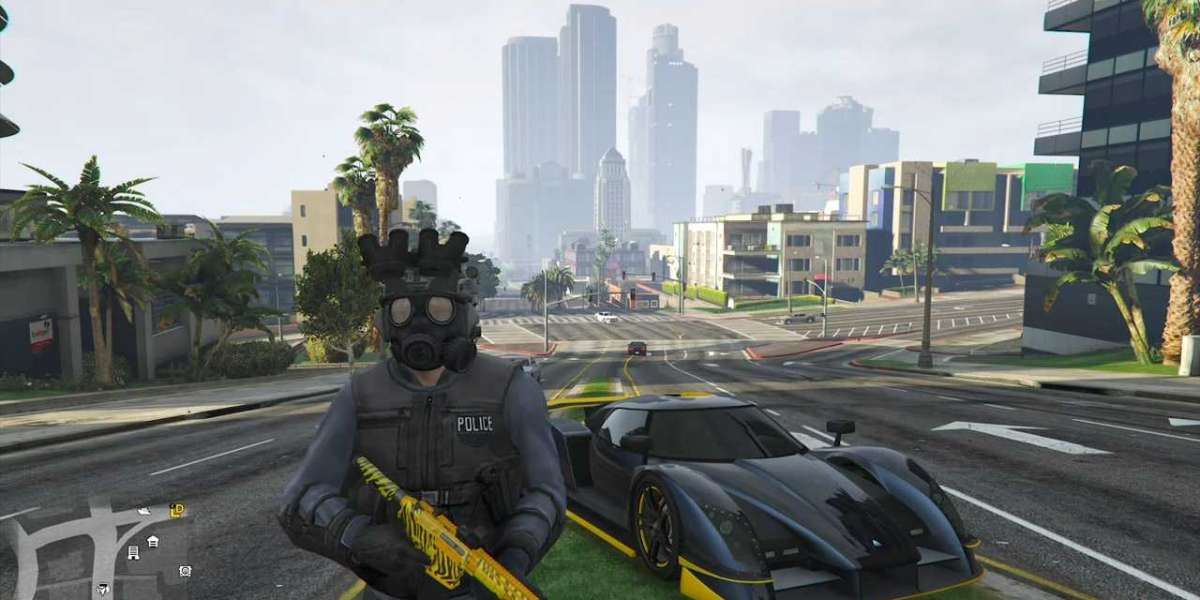Over the past decade, Rockstar Games has transformed from a studio known for groundbreaking single-player storytelling into a company primarily driven by the massive success of its online platforms. Many longtime fans now fear that Grand Theft Auto 6 may mark the end of an era — the last true story-driven campaign before Rockstar fully shifts its focus to live-service content and microtransactions. If you don’t want to start from scratch again before GTA 6 arrives, you can buy GTA 5 modded accounts and keep the excitement alive.
From Storytelling to Monetization
In the early days of Grand Theft Auto, players fell in love with the immersive stories of Tommy Vercetti in Vice City, CJ and Grove Street in San Andreas, and Niko Bellic’s tragic journey in Liberty City. These games defined open-world storytelling and built Rockstar’s reputation as the leader in narrative-driven experiences.
However, everything changed after Grand Theft Auto V launched in 2013. The game introduced GTA Online, a mode that quickly became a financial juggernaut, generating billions through Shark Cards and microtransactions. While fans expected story expansions similar to GTA IV’s DLCs like The Lost and Damned and The Ballad of Gay Tony, Rockstar quietly abandoned those plans. The promised Trevor-focused DLC was canceled, and instead, development resources were poured entirely into GTA Online.
The Decline of Story Expansion
The result was a disappointing silence for fans who valued single-player storytelling. Franklin made a brief return in a 2021 GTA Online update, but the campaign itself never received new missions or narrative depth. Rockstar’s clear priority became online growth — the steady stream of content updates, vehicles, and in-game purchases that kept GTA Online profitable for more than a decade.
The pattern continued with Red Dead Redemption 2. Widely regarded as one of Rockstar’s greatest achievements in storytelling, its online component — Red Dead Online — was quickly neglected. Updates slowed to a crawl, and fans who hoped for single-player DLC, perhaps exploring side stories for characters like Sadie Adler or Charles Smith, were left disappointed.
This shift highlighted a broader issue: Rockstar no longer seemed interested in expanding narrative experiences after launch. Instead, the company prioritized online longevity and recurring revenue streams.
The Industry’s Shift Toward Live Service
Rockstar’s approach reflects a wider trend in the gaming industry. Many major studios now favor live-service models designed to keep players spending rather than simply playing. Games are no longer judged by their stories but by their ability to sustain engagement — through battle passes, cosmetic items, and microtransactions.
Developers like Rocksteady and Ubisoft have also pivoted from storytelling excellence to online-focused releases. Rocksteady moved from the acclaimed Batman: Arkham series to the divisive Suicide Squad: Kill the Justice League, while Ubisoft turned the Assassin’s Creed and Black Flag legacy into live-service-style experiences.
GTA 6: The Future of the Franchise
With Grand Theft Auto 6 reportedly introducing Rockstar’s new “Rome” online engine and RP (roleplay) server integration on consoles, it’s clear that Rockstar plans to evolve its online ecosystem into a long-term platform — possibly replacing the need for future standalone GTA titles.
This raises serious questions about the future of the franchise’s single-player campaigns. GTA 4 released in 2008, followed by GTA 5 in 2013, and now GTA 6 in 2025 — just one new mainline entry in 17 years. If Rockstar continues expanding GTA Online instead of developing new games, GTA 6 could be the last Grand Theft Auto story mode for a very long time.
The Cost of Success
The success of GTA Online has come at a price. Fans who value strong narratives — those who buy Rockstar games for the campaign rather than the multiplayer — are no longer seen as a priority audience. In business terms, they represent a one-time purchase, not a recurring revenue stream.
This approach mirrors trends in other industries, where recurring profits take precedence over creative risk. Just as movie studios now prefer subscription models over box office sales, game publishers are favoring live-service ecosystems over single releases.
A Hope for Balance
Despite these concerns, optimism remains for Grand Theft Auto 6. The upcoming campaign is expected to feature deep storytelling, side missions, mysteries, and emotional depth that rivals Red Dead Redemption 2. Yet even with a strong narrative, the fear lingers that it will be the franchise’s final major story mode before Rockstar commits fully to its online vision.
Many players hope Rockstar will separate the single-player and online components entirely — allowing story-driven games to flourish without being delayed or overshadowed by online development. Fewer delays and more narrative content could restore what made Rockstar truly special: unforgettable worlds filled with unforgettable characters.
Grand Theft Auto 6 will almost certainly deliver an incredible experience. But if the trend continues, it may also symbolize the end of an era — a farewell to the kind of storytelling that once defined Rockstar Games. As the gaming industry continues its march toward live-service domination, fans can only hope that Rockstar remembers what made its legacy legendary in the first place: powerful stories, not just profitable servers.



